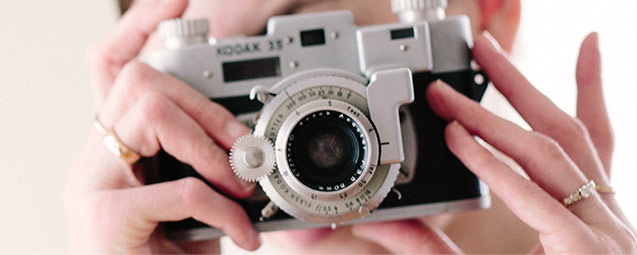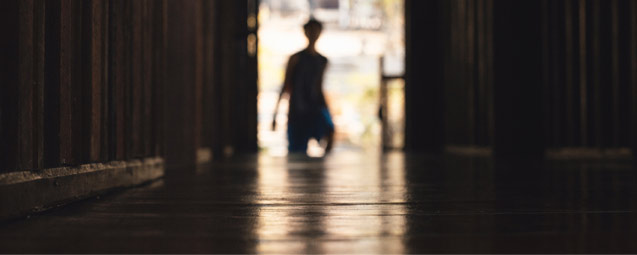
Understanding and Working With Anxiety
What is anxiety?
Anxiety is characterised by powerful feelings of unease, worry, and fear which are often accompanied by physical symptoms like shaking, sweating, and dizziness.
Unpleasant thoughts or images of failure, embarrassment, or danger are added to the mix, creating a debilitating condition that causes real suffering for many people in the UK.
Obsessive Compulsive Disorder (OCD), Post-Traumatic Stress Disorder (PTSD), Panic Attacks, Social Phobias and General Anxiety Disorder (GAD) are all forms of anxiety which I see on a weekly basis in my practice.
The cost of anxiety
Anxiety issues are often limiting, baffling, and embarrassing. I hear of how my clients' lives have narrowed and how they avoid the basic pleasures of life, as well as their responsibilities. Self-esteem, confidence, and a sense of self are all eroded by anxiety. The good news is that they can all start to improve when it is effectively treated.
The solution
Luckily there are established, evidence-based techniques to help with the anxiety issues above. We can work using a cognitive and behavioural approach to pursue the change you are looking for.
First, we can look at any historical reasons that might explain why you are suffering from anxiety. We won't dwell in the past, but in my experience, it is important to discuss the possible causes for the symptoms. We will look at the specific symptoms that are most distressing for you. What is triggering your anxiety? What makes it worse, and keeps it going?
Identifying the thoughts you have and the way they link with your emotions and behaviours gives us the essential information we need to help you make sense of your symptoms.
From here we will do a series of exercises and experiments to start to challenge the very foundation of your anxiety.
Contact Andrew

Understanding Social Anxiety
Social anxiety, or social phobia, is an overwhelming fear of social situations. I think it's best understood by looking at the symptoms people experience when they suffer from it.
People with social anxiety are constantly haunted by worries about what others think of them. They suspect that they are being judged negatively, that people don't like them, or that they are deficient in some way.
Such thoughts can be particularly invasive when people are faced with unknown situations, especially when they think they might be scrutinised and judged.
This unpleasant and debilitating fear leads to people avoiding social situations like parties, after- work drinks, and birthday celebrations.
Unfortunately, when you repeatedly avoid social situations, your anxiety only becomes stronger and deeper, and so do the unwanted negative thoughts about being judged and failing.
There can also be physical symptoms like flushing of the neck or face, heart racing, and sweating. Not only are these symptoms embarrassing, even frightening, they create yet more anxiety because you feel that others can see how uncomfortable you are.
As with all anxiety disorders, when social anxiety is left untreated over time, life becomes smaller, and the anxiety is triggered by a greater range of situations.
For example, imagine you decide not to go to a party alone because you picture standing by yourself, feeling self-conscious. Then you decide not to go to the regular after-work drinks on Fridays anymore because you think you are not as interesting as your workmates, and you will be judged.
After a while, this could lead to your experiencing anxiety at the thought of just sitting down with your work colleagues in the staff canteen for lunch. Your mind is filled with thoughts such as, "I won't be able to make conversation. They may think I'm boring. I've got nothing interesting to say. I'll go red, I’ll be flustered." It is easy to see how this process erodes self-confidence and leads to a smaller, less rewarding life.
The Solution
I work with my clients to discover where the anxiety comes from, to examine the ways in which it manifests itself, and to identify the maintenance cycle that keeps it all going.
This process makes sense of what is happening to you and allows you to feel hopeful that, together, we can do something about your anxiety. The next step is to identify what we can do to change your ingrained responses, to reduce your unwanted symptoms, and to move on with your goals.
Contact Andrew

Case Study - Social Anxiety
Dan from Muswell Hill, counselling for social anxiety:
I have suffered from anxiety for what seems like most of my adult life. Over the last few years, it has really got in the way of me doing things. From working with Andrew, I realised I was suffering from what he called 'social anxiety'.
The Problem
In my social life, I ended up avoiding events like parties and after-work drinks. Once I even ducked out of a good friend's wedding, which left me feeling really bad about myself. My head would fill with horrible thoughts about how I am not interesting to talk to, and how people don't tend to like me. I would imagine standing by myself feeling nervous with a drink in my hand, whilst the other party goers would be talking, laughing and having a really good time.
My social anxiety also affected my work. I would have thoughts full of dread when my boss would want to talk to me about the state of my projects. I would also have a great deal of difficulty sitting in meetings. I would get really anxious about being asked a question I couldn't answer. I would have nasty thoughts about how I would make a fool of myself if I had to speak up, and how stupid I would look.
Even if I did know what to say in the meetings, I would usually sound all nervous, my voice would shake, and I found the fear of this happening made my ability to talk in public even worse. I ended up calling in sick for work on days when there was a big meeting or if I had to give a presentation.
I don't know for sure, but I think my boss was starting to see a pattern, and I was worried that he might confront me and ask me what was going on. At this time I started seeing Andrew for anxiety counselling in his Muswell HIll clinic.
The Solution
I saw Andrew for about six months and I feel I made real progress. I learned how my thoughts and feeling worked together to make me anxious, and how I had unknowingly been my own worst enemy.
By routinely avoiding the situations that made me anxious, I was learning that I was not capable of facing life's challenges. I had unconsciously taught myself that the only way I could get through the horrible thoughts and feelings that made my life so hard was to run away from the events that triggered them.
The outcome was that I had robbed myself of the ability to see that I was much more capable than I usually think and feel I am. I saw that my self-image and esteem have taken a real battering due to my avoidance, and this was all making the anxiety worse and my life much smaller.
Andrew helped me get a really precise understanding of what is actually causing my social anxiety, what he called 'the mechanics' of it. We took real-life examples, looked at the mechanics, and designed ways of challenging my thoughts, fears and behaviours.
I felt like I learned a lot about what's been driving me, which felt great; and I felt like I was actually going to be able to do something about it, which also felt great. It was hard work and at times quite challenging. When I look back I can see it was the more challenging stuff that's been most valuable to me now.
I know I've turned a corner, that I have the knowledge and a good set of tools so I can face the situations I used to run away from. It has not been the easiest thing I've ever done, but it has been one of the most rewarding.
Contact Andrew

Stephan's case study: Mindfulness for Anxiety
Stephan’s symptoms:
I first approached Andrew for therapy after having experienced panicky feelings of unreality in increasing frequency over the last few years. In May this year, I began having these panic experiences every day. My heart would race, I would become disoriented, I would not be able to understand or pay attention to others. Worst of all, I could not understand what was happening to me.
In the past, I have always had nervousness about health, which culminated in me going to the doctor and sexual health clinic more often than average. I had also had a bad trip whilst eating edible marijuana in Holland a few years ago. It was at this time that I experienced ‘unreality’ for the first time.
For the next few weeks, my mind became obsessed with thoughts that I was going crazy or losing my grip on reality. I approached Andrew with a vague idea that I might be experiencing anxiety; however, I knew almost nothing about it.
Treatment:
Andrew identified my experience as anxiety caused by the feelings of unreality and began treatment based on mindfulness and acceptance.
Treatment was not without its challenges, as I was very easily overwhelmed towards the start of the process. A big stage in my treatment was realising the difference between resignation and acceptance. I have defined it for myself in this way: resignation is ‘giving up’ and resigning yourself to experience pain — nobody wants to live like that. Acceptance, on the other hand, is to acknowledge that certain eventualities could happen, and if they do, you will be ready with the tools available.
In matters of the mind, it would seem that if you are not prepared or dread to feel anxious and to think negative thoughts, you will think more of them. This is a difficult paradox and one that involved me facing my fear of unreality. I believe this process is what many people describe as a journey.
With Andrew’s help, I was able to accept the unreality and allow it to pass me by. This radically reduced the fear I had of it, and I quickly ceased to feel anxious in this regard.
This was not the end of my journey. In many ways, I feel as if my real journey was just beginning. I had begun to have many anxious thoughts about many different topics that seemed to change quickly, and it hurt very much to engage in them. I believe that I progressed into General Anxiety Disorder.
How to rob anxiety of its power:
For this, Andrew and I talked about Mindfulness. In my own definition, this is the ability to think on two separate levels: to know that you are thinking something. I could think to myself ‘What if I do not sleep this evening?’ and I would cause myself great pain trying to avoid this thought, whilst I attempted to live in the gaps between thoughts when my mind was calm.
It took me a long time to realise that the object of anxiety treatment is not to never have the thought again. It is to feel fully prepared so that when you have the thought, you will be able to deal with it, and it will not hurt you. For negative thoughts, the ability to allow a thought to live with you whilst not engaging with it is an excellent way to rob it of its power. For emotions, again, mindfulness that they will come and go (and that you do not need to interact with or suppress them in any way) is the best course of action. In both cases, mindfulness allowed me the tool necessary to feel prepared in advance of the thought or feeling.
What I learned:
I have had a number of revelations over the course of the journey. I firmly believe that knowledge dispels fear, and that as I became more aware of why I was experiencing what I was experiencing, my journey became much easier. The most insightful thing I realised was that I was scared of anxiety, and this fear is what made that anxiety worse.
This may have seemed obvious, and it probably was, but I never connected it with the reason my mind would throw up hundreds of different scenarios for me to attempt to deal with. For a long time, I had no idea why this was happening. I believe my mind had become so wary about the feeling of anxiety, it was simulating different situations ‘just in case’ they happened. This piece of insight was illuminating; it allowed me to fully understand what was happening, and further reduced my negative thoughts.
My journey is ongoing and gets slightly easier every day. With the awareness and understanding I now have, I have very little fear of negative or catastrophic thoughts or even the feeling of anxiety itself. I hope one day to reflect on this experience as ultimately beneficial to my life, equipping me as it has with a number of tools to manage thoughts and emotions, and opening the door for me to think differently about the pursuit of happiness and success in my life.
Contact Andrew
